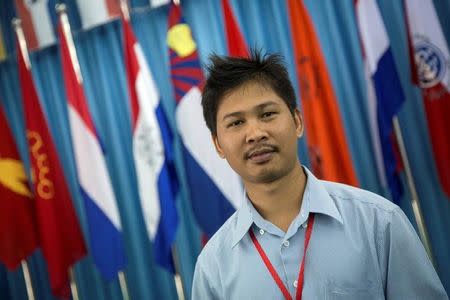Rights group calls on Japan to take stronger stance over arrests of journalists in Myanmar
TOKYO (Reuters) - A Tokyo-based non-governmental organisation, Human Rights Now, on Wednesday called on the Japanese government to take a stronger stance over the arrests of two Reuters journalists detained in Myanmar last week.
Japanese Foreign Minister Taro Kono on Tuesday said freedom of the press was vital and that Japan was closely monitoring the situation, but he did not call for the journalists' release.
Human Rights Now Secretary-General Kazuko Ito told Reuters that Japan should send a stronger message about the arrests.
Ito said that by not joining in international calls for the journalists' release, Japan might be sending a message that it was ok for the Myanmar government to violate human rights.
"Therefore, I would like (the government of Japan) to exercise care in its comments and clearly express astance of standing together with those who are victims of humanrights violations," she told Reuters.
Asked about Ito's remarks, Japan's top government spokesman said Tokyo had already conveyed its concerns to Myanmar.
"I will refrain from details but the government has already directly conveyed its concerns regarding this incident to the government of Myanmar,” Chief Cabinet Secretary Yoshihide Suga told a news conference.
Japan typically shies away from outspoken public comments about human rights issues overseas, preferring to focus on quiet diplomacy.
Japan is one of Myanmar's biggest foreign aid donors, where it vies for influence with China, Myanmar's largest trading partner. Japan said last year it would provide aid worth 800 billion yen ($7 billion) to Myanmar over five years.
Human Rights Now is a well-known group in Japan. It has a membership of over 700 individuals and organisations, including lawyers, with a presence in Tokyo and Osaka in Japan as well as New York, Geneva and Myanmar, its website says, and has had United Nations special consultative status since 2012.
INVESTIGATION NEARS COMPLETION
The Reuters journalists were arrested after they were invited to dine with police officers on the evening of Dec. 12 on the outskirts of Myanmar's largest city, Yangon.
They had worked on Reuters coverage of a crisis that has seen an estimated 655,000 Rohingya Muslims flee from a fierce military crackdown in the western state of Rakhine following attacks by militants.
A spokesman for Myanmar leader Aung San Suu Kyi said on Wednesday he had been informed that the police had almost completed their investigation of the journalists, after which a court case against them would begin.
Authorities have been investigating whether the journalists violated the country's colonial-era Official Secrets Act, which carries a maximum prison sentence of 14 years.
A number of governments, including the United States, Canada and Britain, and United Nations Secretary-General Antonio Guterres, have criticised the arrests as an attack on press freedom and called on Myanmar to release the two men.
"The detention of journalists reporting on such critical matters to the public interest is an egregious attack on freedom of the press in Myanmar that will severely undermine the ability of journalists to conduct their legitimate work without fear of reprisal," Human Rights Now said in a statement, in which it called for the journalists' immediate release and the end to proceedings against them.
(Reporting by Linda Sieg, Kiyoshi Takenaka and Teppei Kasai; Editing by Martin Howell)



